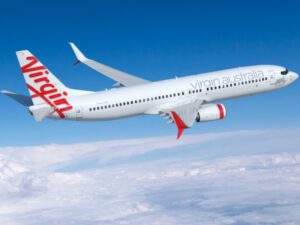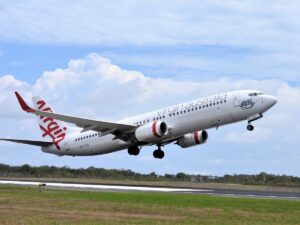
More and more, frequent flyer programs are increasing reward prices without giving any notice.
Changes to award charts are inevitable. Every loyalty program increases the cost of redemptions from time to time, and often it’s reasonable. But it’s reprehensible when loyalty programs have such little respect for their members that they don’t bother to inform them in advance. Many aren’t even advising members after making changes, either.
Contents
Recent frequent flyer program devaluations
This week, both Avianca LifeMiles and Qatar Airways Privilege Club increased the cost of various award flight redemptions without notice. For example, LifeMiles increased the cost of trans-Atlantic First Class redemptions from 87,000 to 130,000 miles overnight.
Meanwhile, Qatar Airways Privilege Club just significantly increased the cost of short-haul award flights on American Airlines and Alaska Airlines. It follows a similar change from British Airways Executive Club last month, which also came with absolutely no warning.
Virgin Atlantic Flying Club, too, has twice increased selected award prices this year without warning. First it was ANA redemptions in May, then Delta rewards last month.
Malaysia Airlines Enrich devalued without notice in February 2024.
United MileagePlus
United MileagePlus is another serial offender. Several times this year, United Airlines has significantly increased the cost of award flights on partner airlines without any notice at all. For example, in May, United suddenly increased the cost of Star Alliance Business Class flights from Australia to Asia from 55,000 miles to 99,000 miles each way.

Etihad Guest
Etihad Guest, too, has increased the cost of award flights on both Etihad Airways and partner airlines this year. The program gave zero notice before making these changes. Afterwards, it only publicised the fact that some award costs had gone down. That was true, but others had gone up, and the worst part was that Etihad then tried to pretend that some of those negative changes never happened. When Australian Frequent Flyer asked Etihad about this, they were not “able” to comment.
Some of Etihad Guest’s price changes have been quite drastic, with award flights on some routes increasing in cost by up to 150% overnight.
To make matters worse, Etihad Guest no longer even follows its own published award charts. Many Etihad Guest redemptions now cost more than the advertised number of miles, both on Etihad and partner airlines, for no apparent reason. The taxes & charges on Virgin Australia redemptions have also gone up significantly, without explanation.

This list of recent frequent flyer program devaluations is not exhaustive. Sadly, there have been so many lately that I’ve started to lose track of them all.
Moving goal posts
Members of frequent flyer programs earn points – and sometimes even buy them – because they believe they’ll be able to use them for valuable rewards. Many people save up their points with a particular redemption in mind.
We’re not saying that frequent flyer programs should never change the number of points or miles needed for a redemption. But when they do change the goal posts, the least they can do is inform members in advance. That way, people at least have a chance to redeem their accrued points at the value they believed they were going to get. It’s also just a basic courtesy.
When loyalty programs change the goal posts without warning, they profit off this. The value of the points sitting in your account reduces overnight, decreasing the airline’s liability, without the airline giving anything in return to its members. And many programs aren’t even giving the courtesy of telling their members when they do this.
Sadly, this seems to be the way many frequent flyer programs are heading – particularly the ones that no longer publish award charts. By removing award charts, airlines seem to think it gives them a licence to increase award costs whenever they like.
In my view, this is poor form. When did loyalty program members decide that they were OK with this?
Loyalty program members can vote with their feet
Airlines may profit in the short term by reducing the value of members’ points. But in the long term, the risk is that members will start to disengage and move their business to other airlines once they realise what’s going on.
This year alone, I’ve burned most of the miles I had left in my United MileagePlus and Etihad Guest loyalty program accounts as a direct result of the continuous devaluations without notice. I’ve also stopped actively collecting new miles with these airlines. As a program member, I don’t like what I see and I no longer trust that my miles in these programs won’t lose even more value tomorrow.

In recent times, I’ve also stopped drawing attention on AFF to offers from United MileagePlus, Avianca LifeMiles and Etihad Guest to buy miles at a discount. I’ve done this because I don’t want to recommend buying miles from an airline that could change the value of those miles at a moment’s notice. How can you buy miles with confidence if you have no idea what they will be worth tomorrow?
Buying miles from United, Avianca or Etihad can still be great value, and there are circumstances where it could still make sense. But if you don’t redeem them immediately, it’s also risky. Why take that risk when other programs, such as Air Canada Aeroplan, have published award charts that they actually stick to?
What can we learn from this?
I think there are two lessons we can take away from all of this…
Don’t hoard points – spend them!
Firstly, don’t hoard frequent flyer points. They are not an investment as they don’t earn interest and ultimately lose value over time! In fact, the inflation rate on points is quite high.
You (hopefully) wouldn’t put all your savings into a bank account that earns no interest for years on end. So, why would you do this with your points?
Points only have value when you redeem them, and you’ll likely get more redeeming them now than in several years. In my view, a huge points balance isn’t a sign of status – it’s a sign that you need to spend more of them. 😉

Look for loyalty programs that give notice of devaluations
The good news is that many frequent flyer programs do still publish award charts and have the decency to warn members in advance before changing them. You can tell which ones these are based on the program’s terms and conditions, as well as their past performance.
For example, the Qantas Frequent Flyer terms & conditions state that the program will give at least three months’ notice of any changes to “Qantas Points earning and redeeming rates” that are within Qantas’ control. That’s a good thing, and Qantas has indeed given that notice period before making negative changes in the past.
Here are the policies of various major frequent flyer programs:
| Loyalty program | Must give notice of changes? | Notice period |
|---|---|---|
| Qantas Frequent Flyer | Yes | 3 months |
| Velocity Frequent Flyer | Yes | 30 days |
| Singapore Airlines KrisFlyer | No | In practice, KrisFlyer has given about a month of notice in the past |
| Cathay Asia Miles | No | In practice, Cathay has given ~3 months of notice in the past |
| Air New Zealand Airpoints | No | |
| Qatar Airways Privilege Club | No | |
| British Airways Executive Club | No | |
| Air Canada Aeroplan | Yes | 2-3 months |
| Avianca LifeMiles | No | |
| Etihad Guest | No | |
| Emirates Skywards | No | |
| Virgin Atlantic Flying Club | No |
As you can see, Qantas and Velocity are more reasonable than many overseas frequent flyer programs in this respect.
In practice, Singapore Airlines KrisFlyer and Cathay Asia Miles have also given at least a month of warning before upcoming devaluations in the past. That said, KrisFlyer removed a lot of Saver award availability after giving notice of its last devaluation – returning it after the price increase took effect. And Cathay did not announce its new partner award pricing until after the change had taken effect.
Many of the loyalty programs that may make devaluations without notice are still valuable and worth using overall. It’s just something to be mindful of.
Spread the risk with flexible points programs
If you’re earning most of your points from credit cards, you can reduce your risk by keeping your points in a flexible bank-operated loyalty program where points don’t expire and the bank must give notice before changing redemption rates. This means you’re not stuck with a single airline’s points in the event that airline does make drastic changes to its loyalty program overnight.















































































Community Comments
Loading new replies...
Join the full discussion at the Australian Frequent Flyer →